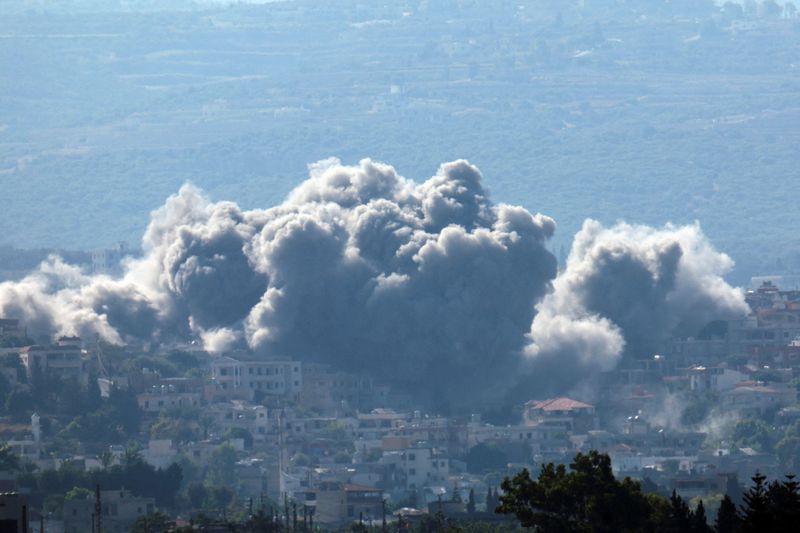Israel government hardliners reject Lebanon ceasefire proposal
2024.09.26 05:08
JERUSALEM (Reuters) – Hardline partners in Israeli Prime Minister Benjamin Netanyahu’s right-wing coalition on Thursday rejected proposals from the United States and France that would see a 21-day ceasefire in Lebanon to allow time for a diplomatic solution to be reached.
Netanyahu, who left Israel on Thursday to address the United Nations, has yet to respond directly to the ceasefire proposal. Before leaving he repeated pledges to ensure that tens of thousands of Israelis evacuated from northern border areas can return home.
Finance Minister Bezalel Smotrich, who heads one of two nationalist-religious factions in the coalition, said Hezbollah should be crushed and that only its surrender would make it possible for the evacuees to return.
“The enemy must not be given time to recover from the heavy blows he received and to reorganize for the continuation of the war after 21 days,” he said in a statement.
National Security Minister Itamar Ben-Gvir’s far-right faction was due to hold an emergency meeting on Wednesday but members of the party have already come out against the proposal.
The United States and France, backed by other allies, called on Wednesday for a 21 day ceasefire along the Israel-Lebanon “Blue Line,” the demarcation line between the two countries, to allow the parties to negotiate towards a potential diplomatic resolution of the conflict.
Israel has launched the heaviest air strikes against Lebanon since the 2006 war over the past week, killing more than 600 people, as months of cross border fire with the Iranian-backed Hezbollah movement spiralled close to all-out war.
Hezbollah has fired hundreds of missiles at targets in Israel including, for the first time, the country’s economic hub Tel Aviv, although Israel’s aerial defence system has ensured that the damage has been limited.
On Wednesday, Israel’s army chief made the most explicit public comment on the possibility of a ground assault on Lebanon, telling troops near the border to be prepared for going across.

It was not immediately clear whether the comments were a precursor to a ground operation or a negotiating tactic designed to pressure Hezbollah to back down. Israel has also boosted forces on the northern border and called up two extra reserve brigades to the northern sector on Wednesday.
Israel and Hezbollah have been exchanging fire for almost a year since Hezbollah launched a first barrage the day after fighters from the Palestinian Islamist movement Hamas attacked communities in southern Israel on Oct 7.








